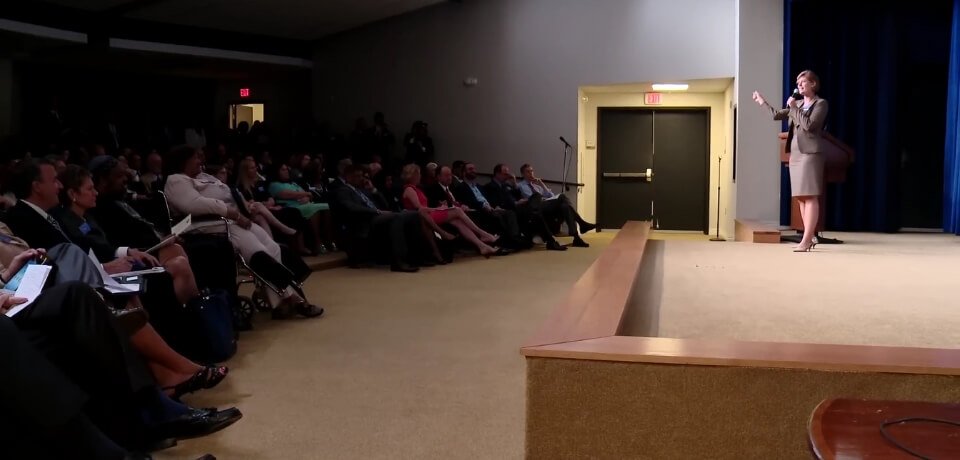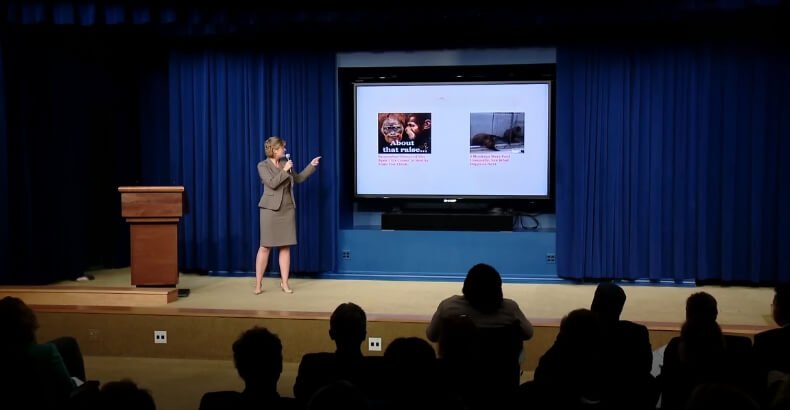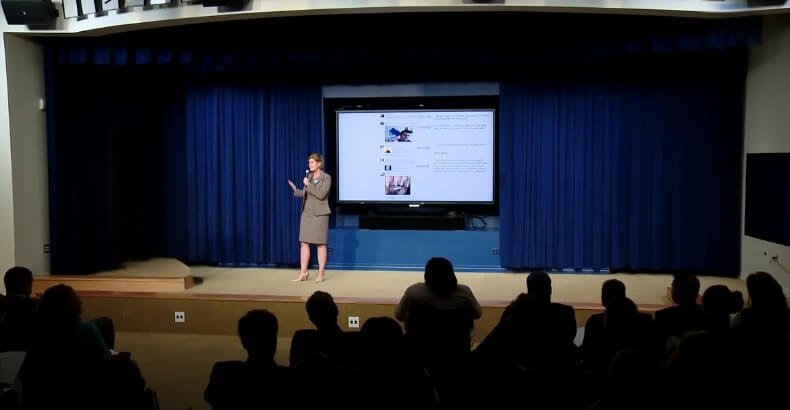Your cart is currently empty!

Health care conferences serve as valuable platforms for professionals, stakeholders, and the public to discuss advancements and challenges in the medical field. These events encourage networking, education, and collaboration among various participants. But, are health care conferences open to the public?
Yes, many health care conferences are accessible to the public, allowing a diverse range of attendees to participate. However, some events may require registration or have specific criteria for participation, making it crucial to check the event details beforehand.
This article will explore the accessibility of health care conferences, including tips on how to attend and what to expect, ensuring you have all the necessary information for your experience.
Health Care Conference — Things You Must Know
A health care conference can provide valuable insight into medical advancements. They gather professionals from various areas to discuss pressing topics and share valuable knowledge. Attendees gain new perspectives, which can improve their practice and improve patient care.

Collaboration between experts is one of the main objectives of health care conferences. These events encourage networking, allowing attendees to build relationships with peers and industry leaders. Such connections can lead to partnerships, research opportunities, and better resources for participants.
Participants should prepare well to make the most of their conference experience. Familiarizing yourself with the agenda and key speakers improves your learning. Being open to discussions and asking questions can deepen your knowledge and engagement during the event.
Are Health Care Conferences Open to the Public?
Yes, many health care conferences are open to the public. These events allow a diverse group of attendees to participate and learn. However, some conferences may have specific registration requirements or criteria for participation, so checking event details is essential. Below are the types of people who attend healthcare conferences:

Health Care Professionals
Health care professionals, such as doctors and nurses, attend these conferences to improve their knowledge. They seek to learn about the latest research and medical advancements. Networking with peers is another crucial benefit for these attendees. Sharing experiences helps improve practices and patient care.
Researchers
Researchers play a vital role at health care conferences, presenting their findings to a broader audience. They aim to share insights and gather feedback on their work. Engaging in discussions allows them to refine their ideas and explore new avenues. Collaboration with other researchers can lead to innovative projects.
Students
Students pursuing careers in health care attend conferences to gain real-world knowledge. They often look for mentorship opportunities and professional networking. Participating helps them understand industry trends and best practices. Engaging with experienced professionals is invaluable for their future careers.
Policy Makers
Policy makers attend health care conferences to stay informed about industry developments. They seek to understand the impact of new research on public health policies. Engaging with professionals provides insights into the challenges facing the health care system. Their participation ensures that policy decisions are based on current information.
Health Care Advocates
Health care advocates attend conferences to promote their causes and raise awareness. They engage with professionals to share their perspectives on various issues. Building connections helps them amplify their messages and gather support. Their involvement contributes to discussions that influence health care policies.
Industry Representatives
Representatives from health care companies also attend these events to showcase their products. They seek to connect with professionals who might use their services. Demonstrating innovations helps create partnerships and drive business growth. Their presence enriches the conference experience for all attendees.
Attending health care conferences can be a valuable way to gain knowledge, network, and stay updated on industry trends. Knowing the eligibility for health care conferences is essential for anyone interested in attending. Whether you are a professional, student, or member of the public, there are opportunities for everyone. Explore conferences that match your interests and expertise for a rewarding experience.
Registration Requirements for Attendance at Health Care Conferences
Health care conferences often require proper registration to run smoothly. Registration helps organizers manage attendance and prepare for the event. Knowing the requirements is essential for prospective attendees. The following are some requirements for attending:
- Online Registration: Most conferences require attendees to register online before the event. This process typically involves filling out a form with personal information.
- Payment of Fees: Registration fees are usually required for attendance. Payment methods can include credit cards, bank transfers, or checks.
- Professional Credentials: Many conferences ask for proof of professional credentials during registration. This can include certifications, licenses, or employment verification from your organization.
- Identification Documents: Some events may require a form of identification upon arrival. Acceptable IDs often include driver’s licenses, passports, or professional badges.
- Membership Status: Certain conferences offer discounted rates for members of professional organizations. Check if your membership status affects the registration process or fees.
- Group Registration Options: Groups attending together may benefit from special registration rates. Coordinating with your organization can help secure these discounts efficiently.
- Submission of Abstracts: If you plan to present, you may need to submit an abstract for consideration. Ensure to follow submission guidelines and deadlines.
- Confirmation of Attendance: Once registered, you will usually receive a confirmation email. This email often contains essential details, including event dates, locations, and schedules.
How to Find the Right Health Care Conferences?
Picking the right health care conference can significantly impact your professional growth and networking opportunities. With so many options available, knowing how to choose the best event is essential. Follow these steps to identify the right conference for your needs:
Step 1: Identify Your Goals
Identify your conference goals. You may aim to network, gain knowledge, or present research. Knowing your objectives will help you narrow down your options. This clarity ensures the conference aligns with your professional needs.
Step 2: Research Online Platforms
Various websites list upcoming health care conferences globally. Use trusted platforms like conference directories or event websites. These resources provide detailed information on dates, locations, and topics. You can compare options to find the right fit.
Step 3: Check Professional Associations
Professional health care organizations often host conferences relevant to specific fields. Visit their websites for event announcements or newsletters. These associations usually offer relevant topics and expert speakers. Attending their conferences ensures credibility and high-quality content.
Step 4: Look for Specialized Topics
Focus on conferences that address specialized topics relevant to your work or interests. These events provide deeper insights into specific areas. Specialized conferences often attract industry experts, leading to more meaningful connections. This makes it easier to engage with like-minded professionals.
Step 5: Consider Location and Timing
Conference location and timing are significant when planning to attend. Choose accessible events that fit your schedule. Consider travel costs and work commitments before deciding. Well-timed conferences can maximize your participation and focus.
Step 6: Review Conference Programs
Examine the program and speakers before registering. A strong lineup of experts and relevant sessions is crucial. Reviewing the agenda will show you how valuable the conference is for you. It helps ensure the event meets your expectations.
Tips for First-Time Attendees at Health Care Conferences
It can be both exciting and overwhelming to attend a health care conference for the first time. Proper preparation will help you maximize your experience and make valuable connections. Here are some essential tips to ensure a successful first conference experience:

- Plan Your Schedule: Review the conference agenda carefully before arriving. Prioritize sessions and speakers that align with your professional goals.
- Dress Professionally: Dress in a way that reflects your professionalism and the industry’s standards. First impressions can make a lasting impact.
- Bring Business Cards: Networking is key at health care conferences, so always carry business cards. These cards make it easy to exchange contact information.
- Stay Engaged: Engage actively during sessions by taking notes and asking questions. This shows your interest and helps with learning.
- Network During Breaks: Use breaks and social events to network with other attendees. Building relationships outside sessions can enhance your experience.
- Be Open to New Ideas: Conferences often present fresh perspectives and innovations. Be open to new concepts that can benefit your work.
- Follow-Up After the Conference: Send follow-up emails to the contacts you’ve made. Continuing the conversation helps solidify your new professional relationships.
- Bring a Notebook or Tablet: Taking notes digitally or on paper ensures you capture key information. This will be useful when reviewing conference material later.
FAQs About Are Health Care Conferences Open to the Public?
Participants of health care conferences have the opportunity to learn about medical advancements, network, and collaborate. Many people wonder whether such conferences are accessible and what they provide. Below are some frequently asked questions that provide further insights into the topic.
Can Non-Health Care Professionals Attend Health Care Conferences?
Yes, non-health care professionals, including students and advocates, can attend some health care conferences. However, certain events may have specific criteria for participants depending on the conference focus.
Is On-Site Registration Available at Health Care Conferences?
Many conferences offer on-site registration, but availability depends on the event and may be limited. It’s advisable to register online in advance to secure your place and avoid higher last-minute fees, which can sometimes be significantly more than early registration.
Can I Earn Continuing Education Credits at Health Care Conferences?
Yes, many health care conferences offer continuing education (CE) credits for professionals, which are essential for maintaining licensure. Be sure to confirm whether the event provides CE opportunities before registering to ensure you receive credit for your attendance.
What Are the Typical Conference Session Formats?
Health care conferences typically offer a mix of keynote speeches, panel discussions, workshops, and poster presentations. Each format provides different learning and engagement opportunities, so choose sessions that best fit your interests to maximize your experience.
What Types of Exhibits Are Present at Health Care Conferences?
Health care conferences often feature exhibits from industry representatives showcasing products, technologies, and services relevant to the field. These exhibits provide insights into the latest innovations and allow attendees to explore solutions, enhancing the overall learning experience.
Conclusion
The purpose of health care conferences is to provide opportunities for professionals, students, researchers, and the general public to learn and network. When exploring the question, are health care conferences open to the public?
The simple reply is yes, but some registration requirements or participation criteria may apply. Attendees can benefit from networking, collaboration, and knowledge-sharing at these events, which promote advancements in the healthcare field.
By preparing ahead, focusing on registration details, and selecting the right conferences, participants can make the most of their experience. Health care conferences are vital to advancing growth and encouraging innovation.
